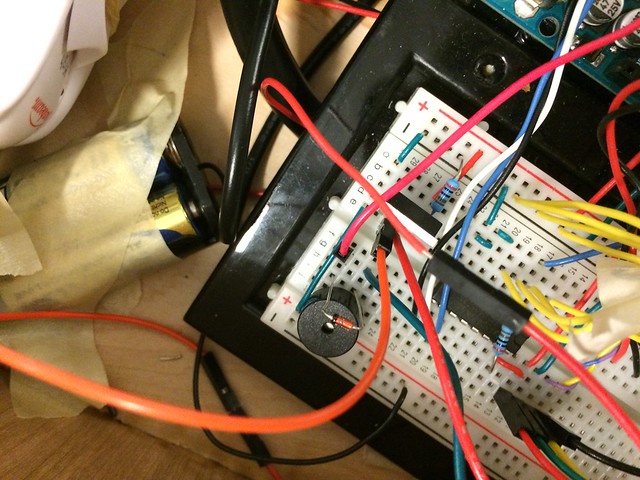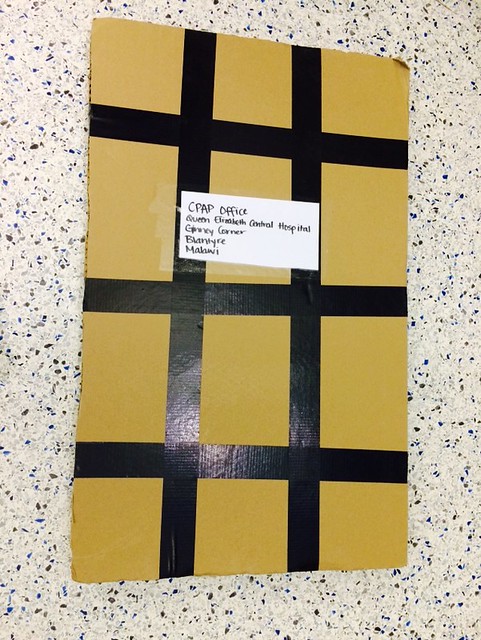I don’t think the reality of my upcoming stay in Malawi has quite hit me, but as I sit in the Frankfurt airport waiting for a 10 hour flight to Johannesburg, I can’t help but feel some pre-trip jitters of excitement. Since school ended, our internship team has been working at the OEDK to prepare technologies to take to Brazil, Namitete, and Blantyre. From circuit building to laser cutting, the past few weeks have been quite the crash course in engineering. As an Economics major I was a little out of my element at first, but I’m proud to say that I’m now pretty savvy with a soldering iron (see Figure 1). Since there were quite a few technologies to prepare for the trip, we split up the responsibilities. Karen and I were in charge of:
1. IncuBaby – a low cost incubator that aims to prevent neonatal hypothermia
2. AxillaProbe – a low cost binary thermometer for home use in rural areas of Malawi
3. FirstHug – a warming system for neonates that is a shift from the maternal-focused standard of care
4. Respiratory Rate Timers – simple devices to help nurses keep track of a baby’s breaths per minute.
IncuBaby was without a doubt our most challenging prototype to prepare. Despite the extensive instructions that the team left behind, there was a lot of guess and check involved. Using the original version of the device as a blueprint, we soldered, stripped, and wrestled wires into place and ended with an impressive replica. We still have a little troubleshooting to do, but we’re optimistic about our progress. Based on our meeting with the IncuBaby team, we want to get feedback from clinicians and engineers in Malawi about the physical design of the device as well as their suggestions for on how to improve and develop the incubator. A more unexpected issue that we probably should have planned for was the problem of packing an entire incubator for international travel. Since the incubator is made up of interlocking lasercut wood pieces, we planned to take the boards of wood in our baggage and assemble the device in Malawi. However, the biggest pieces were a little too large to fit in normal luggage, which led us to some unconventional packing solutions in the form of boards of wood sandwiched between pieces of cardboard (see Figure 2).
After a month of preparation and packing, we’re definitely ready to see how the innovative technologies we have worked on will perform on the ground. We’re starting to switch gears from building to implementing and I could not be more excited to learn more about the realities and interactions of healthcare, technology, economics, and culture in Malawi!
Figure 1 – A section of the IncuBaby circuit
Figure 2 – Redefining Checked Baggage

